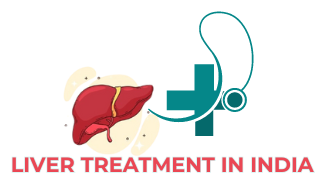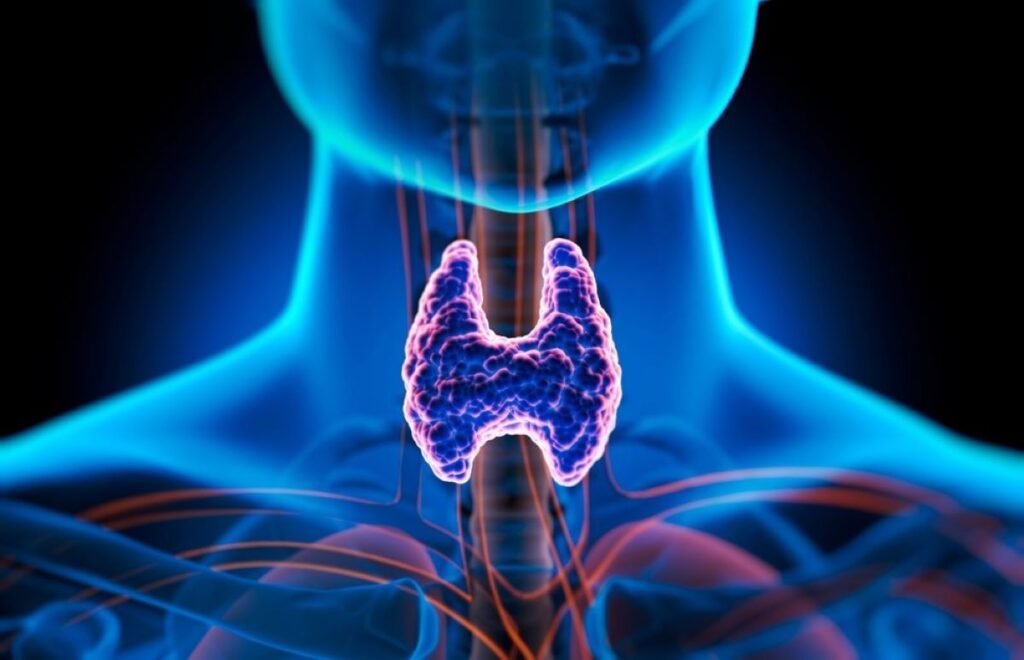Overview Of Impact Of Thyroid On Liver Health
The thyroid and liver are two important parts of our body that work together in many ways. Thyroid hormones and liver function, these two have different roles in our body. The liver helps activate and deactivate thyroid hormones, while the thyroid hormones affect how the liver works. Many people suffers daily with thyroid related liver issues like when someone has a problem with their thyroid, it can also affect their liver. For example, people with an underactive thyroid may have issues with their liver enzymes, which can cause problems with how their body processes fats and muscles. In severe cases, an underactive thyroid can even make someone’s liver seem like it’s failing. On the other hand, people with an overactive thyroid may also have issues with their liver, such as increased stress, blockages, or bone growth.
Understanding Thyroid Disorders
Thyroid disease is when something is wrong with the thyroid gland in your neck. This gland makes hormones that help your body work properly. There are five different types of thyroid disease, and each one has its own symptoms. Some people may have more than one type at the same time. The most common types are when the thyroid gland is not working enough (hypothyroidism) or too much (hyperthyroidism). Other types include when the thyroid gland is bigger than normal (goiter), when there are tumors (which can be cancerous or not), or when the thyroid gland is not working right but there are no symptoms (subclinical hypothyroidism or subclinical hyperthyroidism). In this blog, we will discuss various ways to managing thyroid disorder and thyroid related liver issues in a more in-depth manner.
Thyroid Hormones' Role in Liver Function and Metabolism Regulation
The thyroid gland produces hormones such as thyroxine (T4) and triiodothyronine (T3), which play a key role in regulating the metabolic rate of cells in the body, including liver cells. In the liver, thyroid hormones help regulate the synthesis and breakdown of carbohydrates, proteins, and fats. They also play a role in cholesterol metabolism and bile production. Thyroid hormones can also affect the liver’s sensitivity to insulin, which is important for glucose metabolism. Overall, thyroid hormones help maintain the balance of energy production and utilization in the liver.
Effects of Thyroid Disorder on Liver Health
Thyroid hormones and liver function have a close relationship, as the liver metabolizes thyroid hormones and regulates their systemic effects. Thyroid dysfunction can affect liver function, and liver disease can impact thyroid hormone metabolism. The thyroid gland secretes two hormones, thyroxine and tri-iodothyronine, which regulate the basal metabolic rate of cells. These hormones bind to a nuclear receptor and act as ligand-activated transcription factors. The liver plays a role in thyroid hormone transport and metabolism, and chronic illness can lead to changes in thyroid hormone levels. Let’s discuss some common major Impact of thyroid on liver health:
Hepatic Steatosis
Fatty liver disease (FLD) is characterized by the accumulation of excess fat in the liver. It is also known as hepatic steatosis. In many cases, FLD does not present any noticeable symptoms. There are two types: alcoholic and nonalcoholic. The alcoholic type is caused by drinking too much alcohol, while the nonalcoholic type is more common and can be caused by things like being overweight or having diabetes. The good news is that you can prevent or stop fatty liver disease by making healthy lifestyle changes. There are two forms of nonalcoholic fatty liver disease: simple fatty liver and nonalcoholic steatohepatitis (NASH). NASH is more serious and can lead to liver scarring, liver cancer, and even liver failure. The alcoholic type of fatty liver disease can also cause serious problems if you continue to drink alcohol.
Liver Enzyme Abnormalities
There can have various Impact of thyroid on liver health, including causing abnormalities in liver enzymes. When the thyroid gland is underactive (hypothyroidism) or overactive (hyperthyroidism), it can impact the liver’s ability to function properly.
In hypothyroidism, the liver may produce fewer enzymes, leading to a buildup of substances in the blood that the liver would normally process. This can result in elevated levels of liver enzymes such as alanine aminotransferase (ALT) and aspartate aminotransferase (AST), which are markers of liver damage. On the other hand, hyperthyroidism can increase the liver’s production of enzymes, leading to higher levels of ALT and AST in the blood. This can indicate liver inflammation or injury.
It is important for individuals with thyroid disorders to monitor their liver health regularly through blood tests to detect any abnormalities in liver enzymes. Proper management of thyroid disorders, such as medication or other treatments prescribed by known liver treatment doctor, can help prevent potential liver complications.
How to Manage Thyroid Disorder and Liver Health
Managing thyroid disorder and maintaining good liver health involves a comprehensive approach that includes medical management, regular monitoring, healthy diet, limit alcohol, physical activity, avoid smoking and medication management. Let’s discuss some of these approaches in detail:
Regular Monitoring
Regular monitoring is crucial when managing thyroid disorder and maintaining liver health. For thyroid disorders, it is essential to visit an endocrinologist regularly to check hormone levels and adjust medication dosage if needed. Monitoring thyroid function through blood tests such as TSH, T3, and T4 levels can help determine if the thyroid hormone levels are within the normal range. In terms of liver health, regular check-ups with a healthcare provider can help monitor liver function through specific blood tests such as liver enzyme levels, bilirubin levels, and albumin levels. These tests can provide valuable information on the overall health of the liver and can help detect any liver abnormalities or conditions at an early stage.
Lifestyle Modifications
- Maintain a healthy diet: Focus on eating a balanced diet rich in fruits, vegetables, whole grains, and lean proteins. Avoid processed foods, excessive sugar, and unhealthy fats, as they can negatively impact both thyroid function and liver health.
- Stay hydrated: Drink plenty of water throughout the day to support proper thyroid function and help flush toxins from the liver.
- Exercise regularly: Engage in regular physical activity to boost metabolism, support thyroid function, and promote liver health. Aim for at least 30 minutes of moderate exercise most days of the week.
- Ensure good sleep hygiene: Aim for 7-9 hours of quality sleep each night to support hormone production, metabolism, and overall health.
- Avoid excessive alcohol and caffeine: Both alcohol and caffeine can strain the liver and disrupt thyroid function. Limit consumption and opt for healthier alternatives like herbal teas.
Medication Management
Thyroid Disorder Management:
- Regular physical activity can help improve thyroid function.
- Take prescribed medication as directed, such as levothyroxine for hypothyroidism or methimazole for hyperthyroidism.
- Regularly monitor thyroid hormone levels through blood tests.
- Maintain a healthy diet rich in iodine, selenium, and vitamin D.
- Manage stress levels as stress can impact thyroid function.
- Stay physically active to support overall health.
Liver Health Management:
- Limit alcohol consumption or avoid it altogether.
- Maintain a healthy weight through balanced nutrition and regular exercise.
- Avoid exposure to toxins and chemicals that can harm the liver.
- Get vaccinated for hepatitis A and B to reduce the risk of liver infections.
- Consider liver-friendly supplements like milk thistle or turmeric.
- Follow a liver-friendly diet low in processed foods, sugar, and saturated fats.
Consulting Healthcare Providers for Holistic Management
- Endocrinologist: Consult an endocrinologist for managing thyroid disorder.
- Gastroenterologist/Hepatologist: Visit a gastroenterologist or hepatologist for liver health concerns.
- Nutritionist: Seek guidance from a nutritionist for a personalized diet plan.
- Holistic Approach: Collaborate with your healthcare team to create a holistic management plan that considers treating thyroid related liver issues.
Remember, it’s essential to follow the advice of your healthcare providers and work with them to create a tailored plan for managing thyroid disorder and maintaining liver health.
Potential Complications and Prognosis
As we are already aware of the impact of thyroid disorders on liver health, it is essential to also consider potential complications and prognosis when managing both a thyroid disorder and liver disease concurrently. The complications can vary depending on the specific conditions involved, but generally, liver disease can impact the metabolism and elimination of thyroid hormones, leading to fluctuations in thyroid function. This can result in challenges in managing thyroid disorder symptoms effectively.
Untreated Thyroid Disorder Consequences on Liver Health and Overall Well-being
Untreated thyroid disorders can have various consequences on liver health and overall well-being. It can lead to liver damage, as the thyroid hormones play a crucial role in regulating metabolism and affecting liver function. This can result in conditions such as nonalcoholic fatty liver disease (NAFLD) or liver cirrhosis. In addition, untreated thyroid disorders can also have a significant impact on overall well-being. Symptoms such as fatigue, weight gain or loss, depression, and cognitive impairment can severely affect a person’s quality of life. Furthermore, untreated thyroid disorders can lead to complications such as heart problems, infertility, and osteoporosis.
Prognosis and Strategies for Addressing Concurrent Thyroid Disorder and Liver Disease
In terms of prognosis, it is crucial to closely monitor both conditions and their interplay to prevent any further complications. Collaborating with healthcare professionals specializing in endocrinology and hepatology is essential to develop a comprehensive treatment plan. Monitoring liver function tests, thyroid hormone levels, and managing any underlying causes of liver disease can help improve prognosis.
Strategies for addressing these concurrent conditions may include:
- Nutrition: Eating a balanced and nutrient-rich diet can help support the liver and thyroid gland.
- Stress reduction: Reducing stress can help regulate hormone levels and improve overall health.
- Exercise: Regular exercise can help improve liver function and reduce the risk of developing thyroid disorders.
- Supplements: Certain supplements, such as Omega-3 fatty acids and B vitamins, may be beneficial for thyroid and liver health.
Thyroid disorders can have a significant impact on liver health, as the thyroid plays a crucial role in regulating metabolism and hormone production. When the thyroid is not functioning properly, it can lead to imbalances in hormones that affect various organs, including the liver. One common way thyroid disorder affects liver health is through the development of fatty liver disease. Hypothyroidism, for example, can slow down metabolism and lead to an accumulation of fat in the liver cells, causing inflammation and potentially leading to more severe conditions like cirrhosis. Remember, early detection and proper treatment are essential in safeguarding your liver health. For those seeking comprehensive care for liver conditions, including thyroid related liver issues, consider exploring our advanced Liver Treatment in India Team for getting your esteemed liver expert doctors and top-notch liver transplant hospitals. Take charge of your health today and prioritize the well-being of your liver, a vital organ that plays a significant role in your body’s overall health and function.

